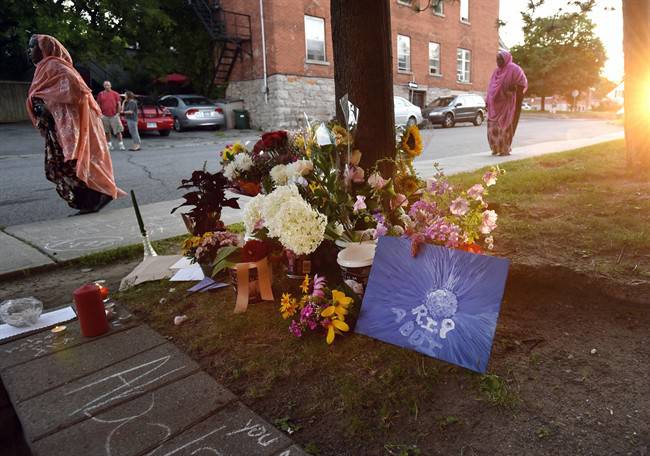The Intersection of Race and Mental Health

By Rabia Khedr
Instead of don’t shoot, we have to now also say, “don’t beat me.”
What a difficult week it was for us, law-abiding Canadians who respect our women and men in uniform.
As we watch the events unfold south of the border, we say confidently, “this wouldn’t happen here.”
But it has been happening here.
We must wake up Canada and face the fact there is racism, subtle or subliminal, embedded in law enforcement in our country.
For Muslim-Canadians, it is important to realize that discrimination in our institutional systems and structures is not only toward Muslims.
It is not only Islamophobia.
Ableism and racism are deeply rooted in the fabric of our society.
In Eurocentric cultures, the colour black symbolizes the negative, the evil – the black market, black mark on your record, black listed.
This translates into so much negative messaging in our cultural impressions and expressions that it becomes etched in our minds.
This colour-based discrimination, or rather, racism is ingrained into us from a very young age.
Couple this with odd behaviour and the male gender, and just expect trouble all around.
You have Abdirahman Abdi, a black man behaving aggressively as a result of his mental illness, presumed violent and men with power and authority seeing him as a criminal taking him down with no holds barred.
Thanks to social media, he didn’t have to live to tell his side of the story.
Three years prior you had Sammy Yatim behaving “aggressively” as a result of mental illness with a pocket knife in hand and a trigger happy cop putting 9 bullets into him to enforce the law.
Dare I ask who should choose the defence of insanity?
The cost of taking Sammy’s life is valued at 6 years.
I wonder if Sammy had actually attacked the cop with his pocketknife, what the sentence would have been.
But I know that we are much better than those south of us.
We learn to change our ways very quickly.
This was evident on Saturday when officers peacefully arrested a man with mental health issues after a patient 5 hour stand-off.
In all fairness, we recognize that authorities are trained to protect society and enforce the law.
They are trained to engage with criminals.
They are not trained to be social workers.
To prevent more such fatalities, we must begin with intensive training and review of the beat or shoot-to-kill mentality.
We must also fund mental health crisis intervention teams to support officers in emergencies.
The role of policing is always evolving in a civil society.
With mental illness on the rise, our officers face this on two frontiers.
On one hand, there is the regular exposure to violent and sometimes gruesome scenes.
These are a part of the job for many officers and can lead to post-traumatic stress disorder.
In recent years, there has been a noticeable increase in police suicides.
Our police officers need self-care more and more to cope and not lose control with the power and weapons at their disposal.
On the other hand, there is the fact that they are frequently called as the only crisis option.
They are called on a daily basis to intervene in the community and in private homes to assist as the only emergency intervention in non-criminal episodes of behaviours involving individuals with psychiatric or developmental disabilities.
They need emergency access onsite to mental health and developmental services professionals in confrontations involving individuals experiencing episodic behaviours in order to minimize further tragedies.
Let’s strengthen justice all around for everyone.
Let’s begin with ongoing mandatory antiracism and mental health training beyond online modules.
Let’s demand that our tax dollars be invested in more specialized crisis intervention supports.
Let’s allow our officers to focus on criminals.
Let’s provide adequate supports to our community’s most vulnerable members to reduce police involvement during any episodic incidents.
##
Rabia Khedr is a human rights activist, community-based researcher and person with a disability. She can be reached through the Canadian Association of Muslims with Disabilities at camd@camd.ca.
